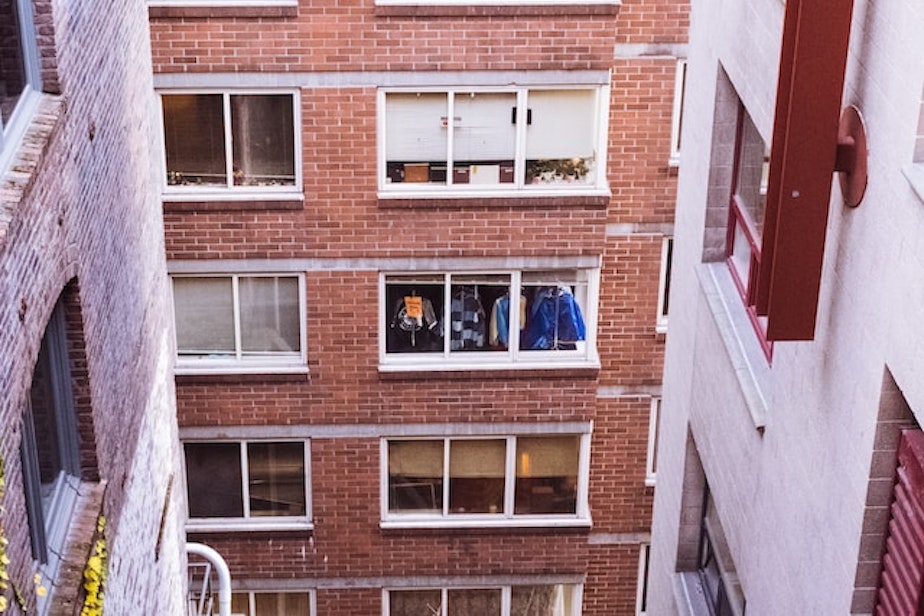Rent ‘control’ bill claws its way back in Olympia

State lawmakers have two and a half weeks left to get bills across the finish line this legislative session. Some bills have been axed, others are facing the push-pull of bipartisan negotiations, and a select handful are sailing their way to Gov. Jay Inslee's desk.
But there's one piece of legislation that's had a particularly rocky journey: House Bill 2114, also known as the rent stabilization bill.
"The goal is to slow rising rent costs by capping the amount that landlords can raise existing tenants rent each year," said Northwest News Network state government reporter Jeanie Lindsay.
Under the legislation, landlords would be required to give tenants six months notice if they plan to raise rents 3% or more. Late fees for rent payments would also be capped at 1.5% of a tenant's monthly rent. The bill is backed by Rep. Emily Alvarado (D-Seattle) and dozens of other House Democrats as well as advocacy groups focused on housing and social justice.
Proponents have argued these changes don't equate to rent control, because landlords still determine the cost of rent between tenants.
"It's a type of way to control or at least slow down rising rental costs in order to keep people in their homes," Lindsay said.
Sponsored
The state House of Representatives passed a version of the bill last week. But in the state Senate, a different situation has been playing out.
In January, things appeared to be business as usual as the Senate Housing Committee approved that chamber's version of the bill.
"But several days later, it turned out that one of the Democrats on the committee, Sen. Annette Cleveland from Vancouver, hadn't signed the paperwork to make that vote official," Lindsay said. "Then, on the day the bill had to make it out of the committee, that paperwork needed to be filed or the legislation would be dead."
Cleveland later released a statement saying she wouldn't support the Senate bill, which came as a "shock" to the committee chair and Senate sponsor of the bill.
According to Cleveland, some components of the bill needed to be changed, like making exemptions for new construction, before she could cast her vote in favor.
Sponsored
In the meantime, the Senate has settled on a new tactic in an effort to take the bill over the finish line: Instead of sending it to the Senate Housing Committee for another potential rejection from Cleveland, the bill will go through the Senate Ways and Means Committee.
"There is a larger Democratic margin of of lawmakers there. So, it could have an easier path to the floor through that committee," Lindsay said. "But it still remains to be seen how each of those lawmakers on that committee will make their decisions on that legislation."
Listen to the full interview with Northwest News Network government reporter Jeanie Lindsay by clicking the play button at the top of the page.




